|
|
|
|
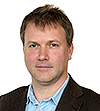 Ewan Birney (EMBL-EBI)
Employment:
2015-Current: Director, European Bioinformatics Institute
2012-2015 : Associate Director, European Bioinformatics Institute
2000-2012: Head of Nucleotide data, European Bioinformatics Institute
On a variety of SAB boards (TGAC; MPI Leipzig; Roslin; Berlin Institute of Health; BI, Finland, NHGRI Sequencing Advisor; OSCHR Data committee)
Other positions held:
- Strategic advisor to Oxford Nanopore
- Non Executive Director, Genomics England
- Strategic advisor to GSK
Prizes and Awards
Elected as Fellow of the Academy of Medical Sciences, 2015
Elected as Fellow of the Royal Society, 2014
EMBO Member, Elected 2012
Winner of the Overton Award from the International Computational Biology Society, 2005
Winner of the Benjamin Franklin Award from Bioinformatics.org/BioIT in 2005
Winner of the Royal SocietyĀfs Francis Crick Lecture in 2003
Patents:
US Provisional Patent Application 61/654295, High-capacity storage of digital information in DNA, filed 1 June 2012 (co-applicant with Nick Goldman)
Patent Cooperation Treaty Application PCT/EP2013/061300, High-capacity storage of digital information in DNA, filed 31 May 2013 (co-applicant with Nick Goldman)
Education:
1996-1999: PhD, St JohnĀfs College Cambridge. Awarded a Scholarship
1992-1996: BA Biochemistry, Balliol College Oxford. 1st Class degree. Awarded a Scholarship
Publications
215 Scientific publications. http://orcid.org/0000-0001-8314-8497
H-index: 91. (Google Scholar) 80,886 Total citations. (Google Scholar)
14 Papers with > 1,000 Citations
27 Papers in Nature (5 first/last author), 9 Science (1 last author). 1 Cell (joint last author).
Selected publications listed overleaf
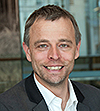
Marcel Dinger (Garvan Institute of Medical Research)
Marcel is the Head of the Kinghorn Centre for Clinical Genomics (KCCG) at the Garvan Institute of Medical Research and conjoint Associate Professor at UNSW Australia. KCCG was one of the first sites in the world to implement the HiSeq X Ten genome sequencing platform, which has capacity to sequence 18,000 whole human genomes per year. The aims of the Centre are to establish genomic medicine in routine healthcare and to leverage clinical genomic data for research.
To this end, the Garvan launched AustraliaĀfs first clinically accredited whole genome sequencing service, Genome.One, to diagnose genetic disease. In addition to his role as Head of KCCG and CEO of Genome.One, A/Prof Dinger heads a research lab that aims to unlock the clinical value of noncoding regions of the genome. A/Prof Dinger has worked in informatics and genomics since 1998 in both commercial and academic capacities.
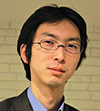
Yoshikazu Furuta (Hokkaido University)
Senior Assistant Professor
Research Center for Zoonosis Control
Hokkaido University, Japan
Research Interest
My research goal is to understand the evolution between closely related bacterial species by diversification of genome and epigenome, especially methylome. Adopting omics technology with synthetic and systems biology approach, I've elucidated novel mechanisms conferring genome structure variation and epigenetics variation, potentially contributing to bacterial evolution. At current affiliation, I apply same approaches for development of diagnostics tools for control of infectious diseases including zoonosis.
Employment
Senior Assistant Professor, Research Center for Zoonosis Control, Hokkaido University, Japan, 2016-present
Postdoctoral Fellow, Massachusetts Institute of Technology, USA, 2014-2016
Postdoctoral Fellow, Boston University, USA, 2014
Project Assistant Professor, University of Tokyo, Japan, 2011-2014
Education
Ph.D., Life Science, Department of Medical Genome Sciences, Graduate School of Frontier Sciences, University of Tokyo, Japan, 2011
B.S., Engineering, Department of Chemistry and Biotechnology, School of Engineering, University of Tokyo, Japan, 2006
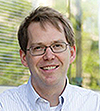
William Greenleaf (Stanford University)
Department of Genetics Stanford University
279 Campus Drive West Beckman Center, Room 257A
wjg@stanford.edu
greenleaf.stanford.edu
ACADEMIC HISTORY
9/1/14 - 10/31/18 Assistant Professor, by courtesy, Department of Applied Physics, Stanford University, Stanford, CA
11/1/11 - 10/31/18 Assistant Professor, Department of Genetics, Stanford University, Stanford, CA
Jan 2008 -Sept 2011 Postdoctoral Training, Department of Chemistry and Chemical Biology, Harvard University, Cambridge, MA. Advisor: X. Sunney Xie
Sept 2003 - Jan 2008 Ph.D., Applied Physics, Stanford University, Stanford, CA. Advisor: Steven M. Block. Thesis Topic: High-resolution Single-Molecule Measurements of Transcription and RNA Folding
Oct 2002 - June 2003 Diploma in Computer Science (with distinction); Trinity College, Cambridge University, UK. Dissertation Topic: A Generalized Method for High-dimensional Time Series Modeling Using Neural Networks and Genetic Algorithms
Sept 1998 - June 2002 A.B. Physics (summa cum laude); Harvard University, Cambridge, MA
Summers: 1998-2000 Undergraduate Research Assistant Mayo Clinic, Rochester, MN. Advisor: Julio Fernandez
Summers: 1994-1998 Research Assistant Mayo Clinic, Rochester, MN. Advisor: Mark Bolander
SCHOLARSHIPS & HONORS
2016 Wilson Prize, Harvard University
2014 Baxter Foundation Scholar
2013 Profiled young investigator, GenomeWeb
2013 Ellison Foundation Young Scholar in Aging (declined)
2013 Rita Allen Foundation Young Scholar
2009-2011 Damon Runyon Cancer Research Fellowship
2006 ARCS Fellowship
2002-2005 National Science Foundation Graduate Fellowship
2002 National Defense Sci. and Engineering Graduate Fellowship (declined)
2002 Outstanding Computer Science Diploma Student
2002 Gates Cambridge Trust Scholar
2002 Phi Beta Kappa, Harvard University
1998-2002 John Harvard Scholar
1999 Detur Prize, Harvard University
1998 6th Place, Westinghouse Science Talent Search
 Chung-Chau Hon (RIKEN)
Dr Chung-Chau Hon is a research scientist at the Division of Genomic Technologies of RIKEN in Yokohama. Dr Hon is currently one of the key members of the FANTOM consortium, which is an international research consortium established in RIKEN over a decade ago, aims to functionally annotate mammalian genomes in large scale, with a focus on transcriptomics. Prior to joining RIKEN, Dr Hon was trained at the Pasteur Institute in Paris and the University of Hong Kong, specializing in transcriptomics of eukaryotic pathogens and phylogenetics of viruses. Since joining RIKEN in 2014, he has been focusing on large-scale integration of high-throughput sequencing datasets for building a comprehensive transcriptomic atlas of the human genome. His research advances the understanding of the origins of non-coding RNAs in mammalian genomes and provides compelling evidences for their potential functionalities. Currently, Dr Hon is focusing on the up-coming edition of the FANTOM consortium, which aims to experimentally characterize the functions of non-coding RNAs in the human genome.
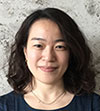
Momoko Horikoshi (RIKEN)
Research interest: I am a Team leader at RIKEN, Centre for Integrative Medical Science (IMS), Laboratory for endocrinology, metabolism and renal disease. My research focus is on investigation of genetic associations with type 2 diabetes (T2D), obesity and early life growth. I have worked closely with both national and international collaborators through projects on large-scale genome-wide association studies in large consortia such as T2D-GENES Consortium, ENGAGE (European Network for Genetic And Genomic Epidemiology) Consortium and EGG (Early Growth Genetics) Consortium. Since I moved to RIKEN in 2016, I am working directly with the state-of-the-art genetic resources generated by Biobank Japan to establish genetic contribution to T2D susceptibility in the Japanese population. I am also working on T2D complications (e.g. retinopathy, nephropathy and peripheral artery disease) and life-course events.
Education:
1998 M.D., University of Chiba, Japan, Faculty of Medicine
2005 Ph.D., University of Tokyo, Japan (Medicine, Genetics)
Appointments:
1998-1999 Clinical Resident, The University of Tokyo Hospital, Tokyo Japan
1999-2000 Clinical Resident, The Social Insurance Central Hospital, Tokyo, Japan
2000-2001 Clinical Resident, Saiseikai Central Hospital, Tokyo, Japan
2001-2002 Senior Clinical Resident, The Department of Diabetes and Metabolism, The University of Tokyo Hospital, Tokyo Japan
2002-2005 PhD candidate at the University of Tokyo, Tokyo Japan
2005-2007 Research resident, The Department of Diabetes and Metabolism, The University of Tokyo Hospital, Tokyo Japan
2007-2010 Assistant Professor, The Department of Diabetes and Metabolism, The University of Tokyo Hospital, Tokyo Japan
2010-2016 Postdoctoral research scientist, Wellcome Trust Centre for Human Genetics, and Oxford Centre for Diabetes, Endocrinology and Metabolism, University of Oxford (Mark I. McCarthy group), Oxford, UK
2016-present Team Leader, RIKEN, Center for Integrative Medical Sciences (IMS), Core for Genomic Medicine, Laboratory for Endocrinology, Metabolism and Kidney Diseases, Yokohama, Japan
2017-present Visiting Associate Professor, Yokohama City University, Yokohama, Japan
Award and Fellowship:
Japan Society for the Promotion of Science, Grant-in-Aid for Scientific Research, Young scientist (2008-2010)
Manpei Suzuki Diabetes Foundation Fellowship (2010-2012)
The 4th YAMATO Scientific Award (2017)
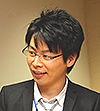 Naoki Irie (The University of Tokyo)
Naoki Irie is an associate professor at University of Tokyo since 2013.
After receiving Ph.D. in Medical Science from Kyoto University (2008), he worked for Congenital Anomaly Research Center at Kyoto University (~2009), where he learned human congenital anomalies.
He moved to the laboratory for Evolutionary Morphology at RIKEN CDB as a postdoctoral fellow in 2009, and continued his work on clarifying how the relationship between animal embrogenesis and their evolution can be formulated.
His recent, bioinformatics-based studies revealed that there is a general tendency in how vertebrate embryos evolve through macro-evolutionary time scale. The issue that has been left un-integrated in the field of Evolutionary Developmental Biology for more than a century.
His research goal is to elucidate how animal embryogenesis biases or limits their evolutionary diversity.
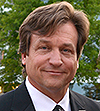 Howard Jacob (HudsonAlpha Institute for Biotechnology)
Howard Jacob, PhD, is a faculty investigator and executive vice president for genomic medicine at the HudsonAlpha Institute for Biotechnology. Jacob uses molecular genetics to understand complex, multifactorial disease. His passion for improving the lives of critically ill patients has been the catalyst for his determination to bring whole genome sequencing into a clinical setting. Jacob received his PhD in pharmacology from the University of Iowa in 1989. He completed two parallel postdoctoral fellowships in functional genomics and molecular genetics and genomics at Harvard, Stanford and MIT. He was on the faculty at Massachusetts General Hospital and Harvard Medical School before moving to the Medical College of Wisconsin in Milwaukee. Jacob was the founding director of the Human and Molecular Genetics Center as well as the Warren P. Knowles Chair of Genetics and a professor in the departments of physiology and pediatrics at MCW, positions he held for nearly 20 years. He joined the HudsonAlpha Institute for Biotechnology in 2015.
In his role as executive vice president for genomic medicine at the HudsonAlpha Institute for Biotechnology, Jacob leads the clinical genomics team at HudsonAlpha and is heavily involved in its two clinical enterprises-- the Smith Family Clinic for Genomic Medicine and the Clinical Services Lab. The Smith Family Clinic is believed to be the world's first stand-alone genomic medicine clinic devoted exclusively to the use of whole genome sequencing for the diagnosis of rare undiagnosed and misdiagnosed disease. The Clinical Services Lab offers CAP/CLIA whole genome sequencing and interpretation. Jacob also runs a research lab at HudsonAlpha. His research focus is verification of specific changes to DNA that are disease-causing, and pinpointing those genetic changes quickly enough to benefit patients.
Jacob has published more than 250 peer-reviewed papers, abstracts and book chapters. He has served on the editorial boards for multiple peer-reviewed journals, NIH study sections, and is currently a member of the National Advisory Board for the National Human Genome Research Institute.

Raju Kucherlapati (Brigham and Women's Hospital/Harvard)
Raju Kucherlapati received his Ph.D. from the University of Illinois at Urbana and did his post-doctoral work in the lab of Frank Ruddle at Yale University. He was assistant professor in the Department of Biochemical Sciences at Princeton University, and then became professor in the Department of Genetics at the University of Illinois College of Medicine. In 1989 Dr. Kucherlapati went to the Albert Einstein College of Medicine where he was the Lola and Saul Kramer Professor of Molecular Genetics and University Chairman of the Department of Molecular Genetics, a position he held for eleven years. In 2001 Dr. Kucherlapati became the Paul C. Cabot Professor of Genetics and Professor of Medicine at Harvard Medical School and was the first Scientific Director of the Harvard Medical School-Partners HealthCare Center for Genetics and Genomics (HPCGG). In addition to his appointment at Harvard, Dr. Kucherlapati also has appointments at the Brigham and WomenĀfs Hospital and the Massachusetts General Hospital in Boston.
Dr. Kucherlapati contributed to several different areas of research. These include gene targeting and homologous recombination, human gene mapping, and generation of physical maps of the human genome with special emphasis on human chromosome 12. Dr. Kucherlapati was a member of the Consortium to map and sequence the human genome. He developed techniques to modify genes in mammalian cells and in cloning many human disease genes. For the past several years he has been a part of the Cancer Genome Atlas (TCGA) program and is the PI of a Genome Characterization Center. He was a member and Chair of several review committees at the NIH, was a member of the National Advisory Council for Human Genome Research at the National Human Genomics Research Institute, and was a co-chair of the steering committee for the National Cancer InstituteĀfs Mouse Models for Human Cancer Consortium. He served on the editorial board of the New England Journal of Medicine and was editor in chief of the journal Genomics. He is a fellow of the American Association for the Advancement of Science and a member of the National Academy of Medicine of the United States. During 2010-2017 Dr. Kucherlapati was a member of President ObamaĀfs Presidential Commission for the Study of Bioethical Issues.
Dr. Kucherlapati has been actively involved in promoting Precision/Personalized Medicine in the US and abroad. He started the first Personalized Medicine Conference at Harvard in 2004 and was a co-organizer of the First Cancer Precision Medicine Conference held in Tianjin, China in September 2016.
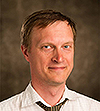
Sten Linnarsson (Karolinska Institutet)
Professor of Molecular Systems Biology
Department of Medical Biophysics and Biochemistry
sten.linnarsson@ki.se / @slinnarsson / linnarssonlab.org
Research direction
My aim is to discover all the cell types in the mammalian body, determine their molecular properties, and understand the cis-regulatory logic of cell type-specific gene expression. To achieve this goal, we have pioneered single-cell RNA sequencing, which we are now applying at large scale in the mouse nervous system. Ultimately, we hope to discover general principles of how cells acquire and maintain their molecular identities.
Birth date 1971-08-13
Employment 2015 - Professor of Molecular systems biology Karolinska Institutet
2015 - Faculty member, Science for Life Laboratory
2013 - 15 Associate professor, Karolinska Institutet
2007 - 13 Assistant professor, Karolinska Institutet
2005 - 07 CTO for Sequencing Technology Genizon Svenska AB
2000 - 05 Founder, board member, and CTO
Global Genomics AB
Education 2001-02-09 Ph.D. "Neurotrophins and neuronal plasticity"
Supervisor: Patrik Ernfors Karolinska Institutet
1994 Biochemistry and immunology University de Paris (30 credits)
1991 - 95 Master of science in molecular biology Stockholm University
1991 - 93 Bachelor in philosophy and mathematics Stockholm University
Awards 2015 Erik K. Fernstrom Prize
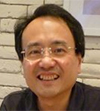
Shinichi Morishita (the University of Tokyo)
Shinichi Morishita received the BS, MS, and PhD degree from the Department of Information Science, Graduate School of Science, The University of Tokyo. He is a professor in the Department of Computational Biology and Medical Sciences, Graduate School of Frontier Sciences, The University of Tokyo. He published more than 100 papers on logic programming, database systems, data mining, optimization algorithms, genome assembly, epigenomics, genome evolution, chromatin structure, RNAi, transcriptome, phenome, and personal genomics.
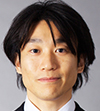
Masao Nagasaki (Tohoku University, ToMMo)
Masao Nagasaki is a Professor at Tohoku Medical Megabank Organization (ToMMo) Tohoku University. As the Group Leader of Genome Information Analysis and a Deputy Department Chair of Department of Integrative Genomics, he is processing the thousands Japanese whole-genome sequenced data from participants of prospective cohort project in ToMMo and constructing the Japanese whole-genome reference panel. All 28 million SNVs in the reference panel are publicly available from the web site (http://ijgvd.megabank.tohoku.ac.jp/). His interest is to develop bioinformatics algorithms and tools for the analysis of data from high performance sequencer on the supercomputer environment. He is also constructing Japanese Reference Genome that integrates the long insertions to the international reference assembly and distributing the assembly from the JRG website (http://jrg.megabank.tohoku.ac.jp/). With these efforts, he is trying to develop more accurate reference panel named Japanese Medical Genome Reference Panel.

Itoshi Nikaido (RIKEN)
Itoshi NIKAIDO, PhD
Unit Leader
Bioinformatics Research Unit
RIKEN Advanced Center for Computing and Communication, Japan
http://bit.riken.jp/
Employment
·Apr. 2013 - Present: Unit Leader, Bioinformatics Research Unit, Advanced Center for Computing and Communication, RIKEN, Japan.
·Jun. 2006 - Mar. 2013: Researcher, Functional Genomics Unit, RIKEN Center for Developmental Biology.
·Apr. 2004 - May. 2006: Research Fellow Division of Functional Genomics, Research Center for Genomic Medicine, Saitama Medical School
Eduction
·Apr. 2001 - Mar. 2004 PhD., Graduate School of Integrated Science,
Yokohama City University
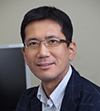 Yasuyuki Ohkawa (Kyushu University)
Employment
2016-
Professor, Medical Institute of Bioregulation, Kyushu University
2011-2015
Associate Professor, Grad. School of Medical Sciences, Kyushu University
2006-2011
Associate Professor, Grad. School of Medical Sciences, Kyushu University
2003-2006
Postdoctoral Associate, University of Massachusetts Medical School (Dr. Imbalzano Lab.)
Education
Ph.D. in 2003, Laboratory of Neuro-biochemistry, Graduate School of Medicine, Osaka University, Japan
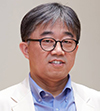 Woong-Yang Park (Samsung Genome Institute)
Name: Woong-Yang Park, M.D., Ph.D.
Position: Director/Professor
Work Address: Samsung Genome Institute, Samsung Medical Center
Department of Molecular Cell Biology, Sungkyunkwan University School of Medicine
50 Irwonro, Gangnamgu, Seoul 06351, KOREA
Tel: +82-2-2148-9812/ Fax: +82-2-2148-9819/ C.P:+82-10-9159-6128
Education and Training:
1988 M.D. Seoul National University College of Medicine, Korea
1995 Ph.D. (Biochemistry) Seoul National University Graduate School, Korea
1997-1998 Postdoctoral Fellow, Rockefeller University (Robert Darnell Lab), USA
Brief Chronology of Employment:
1988-1996 Research Assistant/Lecturer, Dong-A University, Korea
1998-2012 Professor, Seoul National University College of Medicine, Korea
2004-2006 Visiting Professor, Rockefeller University (Robert Darnell Lab), USA
2008-2010 Associate Dean, Seoul National University College of Medicine, Korea
2013-present Director, Samsung Genome Institute, Samsung Medical Center, Korea
2013-present Professor, Sungkyunkwan University School of Medicine, Korea
Professional Activities:
2012-2016 Scientific Committee, International Rare Disease Research Consortium
2014-present Editorial Board, Genome Biology (Springer)
2014-present Editorial Board, Journal of Human Genetics (Nature Publishing Group)
2016-present Associate Editor, Molecules and Cells (Korean Society for Molecular and Cellular Biology)
2017-present Committee member, National Science & Technology Council, Korea
Awards:
2013 Young Frontier Scientist (Korean Academy of Science and Technology)
2015 EMM Award (Korean Society of Biochemistry and Molecular Biology)
2016 Prime MinisterĀfs Commendation (Republic of Korea)
BIBLIOGRAPHY (selected publications in 2015-present)
1. Jung W, Eom HH, Lee HO, Lee KM, Lee HB, Kim KT, Ryu HS, Kim S, Lee JE, Park YH, Kan Z, Han W, Park WY. Single-cell RNA-seq delineates subpopulations of tumor-infiltrating immune cells in breast cancers. Nature Commun. 2017 in press
2. Sa JK, Wang G, Lee HO, Kim KT, Rabadan R, Park WY*, Nam DH*. Modeling genomic architecture informs targeted therapy in glioblastoma. Nature Genet. 2017 in press *co-corresponding authors
3. Lee S, Yang L, Park WY, Lee AE, Park PJ. Microsatellite instability across multiple cancer types. Nature Commun. 2017 in press
4. Lee S, Yang L, Park WY, Lee AE, Park PJ. Checkmate; Comparison of paired set of exome data. Nuc Acids Res. 2017 in press
5. Kim ST, Kim SY, Klempner SJ, Yoon J, Kim N, Ahn S, Bang H, Kim KM, Park WY, Park SH, Park JO, Park YS, Lim HY, Lee SH, Park K, Kang WK, Lee J. Rapamycin-insensitive companion of mTOR (RICTOR) amplification defines a subset of advanced gastric cancer and is sensitive to AZD2014-mediated mTORC1/2 inhibition. Ann Oncol. 2016 Dec 27
6. Um SW, Joung JG, Lee H, Kim H, Kim KT, Park J, Hayes DN, Park WY. Molecular evolution patterns in metastatic lymph nodes reflect the differential treatment response of advanced primary lung cancer. Cancer Res. 2016 Nov; 76(22): 6568-76
7. Kim KT, Lee HW, Lee HO, Song HJ, Jeong da E, Shin S, Kim H, Shin Y, Nam DH, Jeong BC, Kirsch DG, Joo KM, Park WY. Application of single-cell RNA sequencing in optimizing a combinatorial therapeutic strategy in metastatic renal cell carcinoma. Genome Biol. 2016 Apr 29;17:80.
8. Cho SY, Bae JS, Kim NK, Forzano F, Girisha KM, Baldo C, Faravelli F, Cho TJ, Kim D, Lee KY, Ikegawa S, Shim JS, Ko AR, Miyake N, Nishimura G, Superti-Furga A, Spranger J, Kim OH, Park WY *, Jin DK*. BGN mutations in x-linked spondyloepimetaphyseal dysplasia. Am J Hum Genet. 2016 Jun 2;98(6):1243-8. *co-corresponding authors
9. Wang J, Cazzato E, Ladewig E, Frattini V, Rosenbloom DI, Zairis S, Abate F, Liu Z, Elliott O, Shin YJ, Lee JK, Lee IH, Park WY, Eoli M, Blumberg AJ, Lasorella A, Nam DH, Finocchiaro G, Iavarone A, Rabadan R. Clonal evolution of glioblastoma under therapy. Nature Genet. 2016 Jul;48(7):768-76.
10. Ryu D, Joung JG, Kim NK, Kim KT, Park WY. Deciphering intratumor heterogeneity using cancer genome analysis. Hum Genet. 2016 Jun;135(6):635-42.
11. Yoo CE, Moon HS, Kim YJ, Park JM, Park D, Han KY, Park K, Sun JM, Park WY. Highly dense, optically inactive silica microbeads for isolation and identification of circulating tumor cells. Biomaterials. 2016 Jan;75:271-8
12. Jung H, Lee D, Lee J, Park D, Kim YJ, Park WY, Hong D, Park PJ, Lee E. Intron retention is a widespread mechanism of tumor-suppressor inactivation. Nature Genet. 2015 Nov;47(11):1242-8
13. Kim J, Lee IH, Cho HJ, Park CK, Jung YS, Kim Y, Nam SH, Kim BS, Johnson MD, Kong DS, Seol HJ, Lee JI, Joo KM, Yoon Y, Park WY, Lee J, Park PJ, Nam DH Spatio-temporal evolution of the primary glioblastoma genome. Cancer Cell. 2015 Sep 14;28(3):318-28
14. Kim KT, Lee HW, Lee HO, Kim SC, Seo YJ, Chung W, Eum HH, Nam DH, Kim J, Joo KM, Park WY. Single-cell mRNA sequencing infers subclonal heterogeneity in anti-cancer drug responses of lung adenocarcinoma cells. Genome Biol. 2015 Jun 19;16:127
 Lita M. Proctor (NIH)
As Program Director, Dr. Proctor is responsible for coordination of the Human Microbiome Project (HMP). The HMP is an eight-year, trans-NIH Common Fund Initiative to create a toolbox of resources for this emerging field. During the first phase of HMP (2008-2012), resources which were developed included bacterial, viral and fungal strains and their genome sequences, phylogenetic and metagenomic sequence data from the microbiomes of healthy adults and from a collection of cohort studies of patients with specific gut, skin or urogenital diseases. Computational tools for phylogenetic and metagenomic data analysis, and single cell genomics and novel cultivation approaches as well as ELSI studies in human microbiome research rounded out the resources for this phase.
For the second phase of HMP (2014-2016), an integrated dataset of biological properties, to include transcripts, proteins and metabolites, from both the microbiome and host will be developed as a community resource. These datasets are being developed from three different systems - IBD, diabetes and pre-term birth - as exemplar models of microbiome-associated conditions or diseases. Computational tools to analyse these complex datasets will also be developed as a resource.
Dr. Proctor joined the Division of Genomic Sciences in the Extramural Research Program in 2010. Prior to this she served as Program Director at the National Science Foundation (NSF) in the Geosciences and the Biosciences Directorates, where she managed microbiological, bioinformatics and research resources programs. She is formally trained in microbial ecology, was a National Science Foundation (NSF) Postdoctoral Fellow in molecular microbial genetics at the University of California, Los Angeles, and has held appointments at Florida State University and at the University of California, Santa Cruz.
 Jeroen Raes (KU Leuven)
Prof. Jeroen Raes (m) is associate professor at KU Leuven since 2013 and VIB group leader since 2009. His group currently consists of 16 scientists, with expertise in bioinformatics, systems biology, clinical research and microbiology. He has a substantial track record in microbiome research and has been pioneering the analysis and integration of meta-omics datasets (metagenomics, metatranscriptomics, metaproteomics, meta-metabolomics) with environmental, clinical, host omics and dietary data. He was involved in the FP7 MetaHIT and NIH Human Microbiome Project (the latter as only European partner), which laid the foundations for the human microbiome field as it is today. Finally, his lab is performing a wide range of disease-related projects in a.o. IDB, diabetes, cancer, IBS and antibiotics resistance on national (FWO/IWT) funding and develops novel approaches and tools for microbiome research. Jeroen Raes coordinates the Flemish Gut Flora project, a large scale microbiome- focused population cohort in Belgium, and is bioinformatics coordinator in the Tara Oceans project performing large-scale meta-omics analysis of plankton communities.
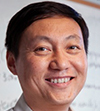 Bing Ren (UCSD School of Medicine)
Dr. Ren is currently Member of the Ludwig Cancer Research (LCR) and Professor of Cellular and Molecular Medicine at the University of California, San Diego (UCSD) School of Medicine. He is also a co-director of the UCSD Bioinformatics and Systems Biology Graduate Program. Dr. Ren obtained his Ph.D. from Harvard University in 1998, and subsequently conducted postdoc research at the Whitehead Institute. He joined the faculty at LCR and UCSD in 2001, and was promoted to Associate Professor in 2007 and to Full Professor in 2009. Dr. Ren has made important contributions to the understanding of gene regulatory mechanisms and chromatin organization in mammalian cells. As a postdoctoral fellow, he invented ChIP-chip, a transformative approach for genome-wide determination of transcription factor binding and covalent chromatin modifications. As an independent investigator, Dr. Ren exploited this approach for annotation of cis regulatory sequences in the human genome. He discovered signature chromatin modification patterns at transcriptional enhancers, and proposed a chromatin-modification-signature based enhancer mapping strategy for annotation of these regulatory sequences in genomes. Dr. Ren and colleagues further demonstrated that cell type specific activities of enhancers correlate with their chromatin modification states, a finding that set the stage for global analysis of gene regulatory mechanisms during mammalian development. In recent years, Dr. Ren also investigated the molecular architecture of chromatin in mammalian cells and made several key discoveries: 1) He found that the genome is partitioned into thousands of megabase-sized Āgtopological domainsĀh, a structural feature that is highly conserved during development and through evolution; 2) He showed that topological domains are units of genome organization that physically constrain the long-range regulatory interactions between enhancers and their target genes; and, 3) he and colleagues demonstrated that the cis regulatory elements and transcription factors regulate the formation of topological domains. As a principal investigator, Dr. Ren has actively participated in the NIH ENCODE project, the Roadmap Epigenome project, and the Common Fund 4D Nucleome project over the years. He is a recipient of the Kimmel Scholar award, the Young Investigator Award of the Chinese Biological Investigator Society, the Chen Award for Distinguished Academic Achievement in Human Genetic and Genomic Research, and an elected fellow of the American Association for the Advancement of Science.
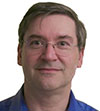 Michael Rhodes (NanoString Technologies, Inc.)
Graduated from York University with a degree in Genetics, did a Ph.D. in Bioinorganic Chemistry at University of London. After a post doc in Chicago working on genetics of metal transport in P. aeruginosa, returned to UK to work at United Kingdom Human Genome Mapping Project Resource Centre finishing as Operation Manager in charge of four teams: - Mouse resequencing, linkage Hotel, Academic Services and Custom services. Joined Applied Biosystems in 1999, worked on Genotyping, qPCR and finally Next Generation Sequencing. Joined Nanostring in 2012 after seeing the potential of the nCounter technology to take the discoveries from NGS and apply them to translational research. At Nanostring he has worked on many new applications, including 3D biology and advanced analysis for nSolver and is now helping develop Hyb & Seq™.
 Serena Sanna (Cittadella Universitaria Cagliari )
Current position
Assistant Professor at Department of Genetics, University
Medical Center Groningen (UMCG), Groningen, The Netherlands
Research of Interest
My research focuses on studying the genetics of quantitative traits and complex diseases. Advanced high-throughput
genotyping technologies, as well as computational tools, allow fine-scale characterization of genetic variation and have
made the search of susceptibly loci successful, in particular via whole-genome association analysis approaches. Genetic
studies are nowadays extremely powerful with the advent of next-generation sequencing technologies. By coupling
cutting-edge technologies and methods with a special population, the Sardinians, I have identified key molecular
mechanisms underlying hundreds of complex traits. I am now interested to further study the complexity of diseases by
incorporating non-genetic components from ?omics experiments.
Positions and Employments:
2016-to present: Assistant Professor at the Department of Genetics, University Medical Center Groningen, Groningen, The
Netherlands.
2011-to present: Permanent position as Researcher at the Istituto di Ricerca Genetica e Biomedica (IRGB), of the National
Council of Reasearch (CNR), Cagliari (Italy) (from Sept 16 2016 is a 0% appointment)
2011-2016: PhD supervisor for students at the University of Sassari (Italy) and University of Cagliari (Italy)
2010 (6 months): Visiting investigator at the Center for Statistical Genetics, Department of Biostatistics, University of
Michigan (USA).
2007-2010: Research Investigator at the IRGB Institute of the CNR, Cagliari (Italy)
2005-2007: Post-doctoral fellow at the Center for Statistical Genetics, Department of Biostatistics, University of Michigan
(USA).
Awards and Honors:
2016- Selected by the Thompson Reuter for ĀgThe WorldĀfs Most Influential Scientific Minds: 2015Āh, listing the top
researchers in science around the globe.
2015 - Selected by the Thompson Reuter for ĀgThe WorldĀfs Most Influential Scientific Minds: 2015Āh, listing the top
researchers in science around the globe.
2014 - Selected by the Thompson Reuter for ĀgThe WorldĀfs Most Influential Scientific Minds: 2014Āh, listing the top
researchers in science around the globe.
2013 - Best CNR (National Research Council) young scientist in Biomedics
2012 ? Qualified as Associate Professor in Medical Genetics for italian Universities (Abilitazione Scientifica Nazionale alle
funzioni di professore di II fascia nel settore concorsuale 06/A1 ai sensi del DD n. 222/2012)
2008 - ESHG (European Society of Human Genetics) 2008 Young Scientists Award, Barcelona, June 2nd 2008
 Robert Sebra (Mount Sinai)
RESEARCH PROFILE
My interdisciplinary background spanning graduate school and industrial research experience includes strong
expertise in the fields of photopolymerization chemistry, surface bioconjugation techniques, lab-on-a-chip
platforms, active biomaterials, single-molecule detection assay development, and third-generation DNA
sequencing. Previously, as a Staff Scientist at Pacific Biosciences, I spearheaded various R&D projects aimed at
developing a rapid-turnaround, single-molecule real-time (SMRT) sequencing assay with long readlength. This
increased readlength enables the identification of novel genomic alterations critical for differentiating otherwise
similar alleles and gDNA isolates. Some of the challenges associated with this research included correctly
formulating the sequencing chemistry to overcome enzyme kinetic and photochemical barriers resulting in a 100X
increase in readlength and continuously troubleshooting complex, sometimes heterogeneous, genomic DNA samples
to provide more homogenous reads. I have demonstrated the capability to plan and rapidly execute SMRT
sequencing technology instrumental in the publication of recent NEJM papers investigating the Haitian cholera and
German E. Coli outbreak strains as well as various other publications in high impact journals. I have also
collaborated with various genome institutes on technology development programs that include hybrid assembly of
long reads with other shorter read DNA sequencing platforms such as Illumina Hi-Seq, Ion-Torrent and BioNano
Genomics. Integration of these platforms has proven fruitful in generating long, error-corrected reads necessary for
various assembly algorithms to achieve low-contig, high N50 assemblies of novel genomes and for phasing large
structural variants. Since establishing a Technology Development team at ISMMS, I have enabled this integrated
approach towards a variety of arenas, including infectious disease surveillance to better understand genomic identity
between community and hospital isolates by comprehensive characterization of microbial isolates as well as initiated
programs for better targeted approaches for human disease diagnostics that relate to cancer and inherited disease.
IMPACT
The impact of establishing a technology presence at ISMMS is manifold. 1. Locally, we have developed expertise
and established a technology suite that enables the MSH community to discover, generate, and use common and
niche genomic information for creating the future of niche diagnostics in inherited, infectious, and somatic disease.
The program is broad and has helped to create a stronger foundation for generating higher resolution information.
This data has been used for pathogen surveillance, inherited disease diagnostics by developing panels like the Super
Panel, and by creating an arsenal of targeted cancer panels and technologies such as single cell isolation and
sequencing methods. These resources are Institute and community driven to enable a toolbox for enabling better
R&D, clinical and patient information at Sinai. 2. Further, the Technology Development initiative has led to a
plethora of New York City and domestic external collaborations in infectious disease, genomics, and beyond,
facilitating collaborative grants and publications. 3. International collaborations have also been on-going including
early access technology development, infectious disease and outbreak surveillance and community genomics efforts
also resulting in collaborative publications and initiatives beyond those in the USA.
GRANTS, CONTRACTS, FOUNDATION SUPPORT
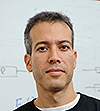 Eran Segal (The Weizmann Institute of Science)
Dept. of Computer Science and Applied Mathematics eran@weizmann.ac.il
Ziskind building, room 149 http://genie.weizmann.ac.il
Weizmann Institute of Science
Rehovot, 76100, Israel
EDUCATION
Ph.D. in Computer Science, Stanford University, USA. 1999-2004
Ph.D. minor in Genetics, Stanford University, USA. 1999-2004
B.Sc. in Computer Science, Tel-Aviv University, Israel 1995-1998
POSITIONS
Professor, Weizmann Institute of Science, Israel 2015-present
Associate Professor, Weizmann Institute of Science, Israel 2011-2015
Senior scientist, Weizmann Institute of Science, Israel 2005-2011
Postdoctoral fellow, Rockefeller University, USA 2004-2005
HONORS AND AWARDS
2016 Elected to list of 50 Innovators, Sonima (http://bit.ly/2awTzlu)
2015 Michael Bruno prize, awarded by the Israel Institute for Advanced Studies
2015 Elected as EMBO Member
2014 European Research Council (ERC) consolidator grant.
2014 Landmark paper by the journal Cell (one of 25 papers in 1974-2014, http://www.cell.com/40/40archive)
2014 Third highest public engagement for a scientific paper (http://www.altmetric.com/top100/2014/)
2012 Elected to the Young Israeli Academy of Science
2009 Morris L. Levinson prize in biology
2008 Scientist to watch, The Scientist (http://www.the-scientist.com/2008/2/1/61/1/).
2008 ESI-Topics hot paper (http://www.esi-topics.com/nhp/2008/january-08-Segal_Widom.html)
2008 European Research Council (ERC) starting grant (one of 201 proposals selected from over 9000).
2007 Overton prize, International Society for Computational Biology (ISCB). Awarded to one scientist a year,
for outstanding accomplishments in computational biology (http://www.iscb.org/overton.shtml).
2007 EMBO Young Investigator Award (http://www.embo.org/about_embo/press/new_yips07.html).
2006 Alon Fellowship Tenure track for young faculty, Israel.
2004 Research Fellowship, Center for Studies in Physics and Biology, Rockefeller University
2004 Best Paper by a Young Scientist Award. Research in Computational Molecular Biology (RECOMB)
2003 Best Paper Award. Intelligent Systems for Molecular Biology (ISMB) 2003.
2003 Best Student Paper Award. Intelligent Systems for Molecular Biology (ISMB) 2003.
2003 Runner-up for Best Student Paper Award. Uncertainty in Artificial Intelligence (UAI) 2003.
2003 Best Presentation Award. Biomedical Computation at Stanford (BCATS).
2002 Runner-up for Best Presentation Award. (BCATS) 2002.
1999-2003 Stanford Graduate Fellowship (SGF).
1999-2001 Fulbright Scholarship.
1995-8 Three-time Dean of the Faculty Award of Excellence, Faculty of exact sciences, Tel-Aviv University.
1995-8 Three-time Dean of the Faculty B.Sc. Scholarship, Faculty of exact sciences, Tel-Aviv University
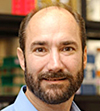 Michael Snyder (Stanford University)
Citizenship
United States
Present Address
Dept of Genetics
Stanford University
300 Pasteur Dr. M344
Stanford, CA 94305-5120
Office (650) 736-8099
Mobile (650) 796-6378
mpsnyder@stanford.edu
Education
1973-1977 B.A. University of Rochester, Rochester, New York Chemistry and Biology
1978-1982 Ph.D. California Institute of Technology, Pasadena, California
Department of Biology, Degree conferred 6/83
Professional Experience
1977-1978 Research Assistant, Department of Biology, University of Rochester, Rochester, New York
1978-1982 Graduate Student with Dr. Norman Davidson, California Institute of Technology, Pasadena, California
1982-1986 Postdoctoral Fellow with Dr. Ronald W. Davis, Department of Biochemistry, Stanford University School of Medicine,
Stanford, California
1986-1990 Assistant Professor, Department of Biology, Yale University, Connecticut
1990-1997 Associate Professor, Department of Biology, Yale University, Connecticut (tenured 1994)
1997-2009 Professor, Dept. of Biology (now Mol. Cell. Devel. Biol.), Yale Univ., CT
1991-2009 Member Yale Comprehensive Cancer Center
1992-2009 Associate Professor/Professor (Joint Appointment), Department of Molecular Biophysics and Biochemistry, Yale University
1998-2004 Chair, Dept. of Molecular, Cellular and Developmental Biology, Yale Univ.
(Dept. doubled in size and 3X in funds during my tenure).
2002-2009 Director of Undergraduate Studies, Yale MCDB Dept.
2002-2009 Director, Yale Center for Genomics and Proteomics
2006-2009 Genetics Society of America Council Member (Elected)
2006- 2008 President, US HUPO (Elected)
2001-2009 PI, Yale Center of Excellence in the Genome Sciences (CEGS)
2004-present PI, NIH Training Grant in Genomics and Proteomics (first Yale, now Stanford)
2009-present Chair, Department of Genetics, Stanford University School of Medicine
2009-present Director, Center for Genomics and Personalized Medicine
2013-present CIRM Center for Stem Cell Genomics
Academic Honors/Fellowships
1978-1982 NIH Predoctoral Training Fellowship
1982-1985 Helen Hay Whitney Postdoctoral Fellowship
1986 United Scleroderma Foundation Award
1987-1991 Pew Scholar Award
1989 Yale Junior Faculty Fellowship
2000-2005 Burroughs Wellcome Scholar Award
2002 Genome Technology Finalist in Microarray Masters
2002-present Appointed Lewis B. Cullman Professor of MCDB
2007 Connecticut Medal of Science
2009 Pioneer Award, HUPO
2011 Named Stanford B. Ascherman Professor
2014 High Impact/Most Cited Scientists
Advisory Committees
1989,90, Member NIH Study Section- Ad hoc Reviewer
94-98, 2000-07 Member NIH Study Section- Ad hoc Reviewer
1993 Scientific Advisory Board Review Panel-American Cancer Society
1994-96 Howard Hughes Predoctoral Fellowship Review Committee
2002 Damon Runyan Walter Winchell Review Panel
1996-2002 March of Dimes Grant Review Panel
1997 ATCC Advisory Committee
1999 NSF Division Review Panel
2000, 2002 NIH Study Section Review Working Group
2000 Canadian Genome Center Review Panel
2001-present Northeast Structural Genomics Consortium Scientific Advisory Committee
2001-present Member, Institute of Genetics Advisory Council, CIHR Canada
2002-2007 Member, Ontario Genome Institute Scientific Advisory Board
2002-2006 Member, Chinese National Human Genome Institute Advisory Board
2007-present SAB, Integrated Genomics Project Univ. of Toronto
2008-present SAB, Duke Univ. Systems Biology Center
2003-2006 SAB, Blueprint Initiative
2003 NIH Special Road Map Advisory Committee
2003 External Reviewer, Dept. of Medical Genetics, Univ. of Toronto
2003-2010 Scientific Advisory Board, Gottenberg Univ. Genomics Meeting
2004-2007 Damon Runyan-Walter Winchell Review Panel
2007 NSF Plant Genomics Initiatives 5 Year Review
2008 External Review Committee, Gene Expression Unit, EMBL
2008 Proteomics Standards Initiative
2008 EDRN Review of Boston Group
2008 Review Committee for DOE Macromolecular Assemblies
2008 Proteomics Structure Committee Advisory Group
2008-2012 Member, MABS NIH Study Section
2006-2010 Genetic Society of America Members and Meetings Committee
2008-2011 Executive Committee of US HUPO
2008-present Executive Council of HUPO
2009 Univ. of Pennsylvania, Genomics & Computational Graduate Program Review
2008-present Uppsala Univ. Advisory Broad on Bertolli Center for Neurobiology
2009-present Advisory Board Member, Yeast Proteomics Center, Univ. of Manchester
2012-present Chair, Scientific Adviosry Committee HPP
2013-present Executive Council Human Genome Meeting
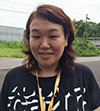
Shino Suzuki (JAMSTEC)
E-mail: sisuzuki@jamstec.go.jp
Research Interests
My research goals are to understand how environmental conditions and gradients define microbial diversity and composition, how microorganisms and genes are functioning in a given environment, how microbial life can act as a force on large scale geological processes, how microbial genes and genomes adapt and evolve in the environments and how microbial ecosystems can be manipulated. Extreme environment is one of the ideal biosphere to begin answering these fundamental scientific questions because the study of microorganisms functioning in an environment in which, according to our present knowledge, growth should be marginal, if not impossible, is bound to show new horizons for microbial life. By revealing the specific metabolic requirements for the life at the Āelimit of lifeĀf, novel life strategies may be identified. I have applied metagenomic approach to answer the given hypotheses associated with these questions.
Education
2003 Ph.D., Graduate School of Agricultural and Life Sciences, University of Tokyo
2000 M.S., Graduate School of Agricultural and Life Sciences, University of Tokyo
1998 B.S., Faculty of Industrial Science and Technology, Tokyo University of Science
Employment
2015 - Now Ā@Project Senior Scientist, Japan Agency for Marine-Earth Science and Technology, Kochi Institute for Core Sample Research, Japan
2008 ? 2015 Postdoctoral fellow/Staff Scientist, J. Craig Venter Institute, Microbial and Environmental Genomics, La Jolla, CA, USA
2004 - 2008 Ā@ Postdoctoral fellow, University of Tokyo, Japan
2003 - 2004Ā@ Postdoctoral fellow, Marine Biotechnology Institute, Japan
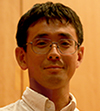 Yutaka Suzuki (The University of Tokyo)
1994 Department of Chemistry, University of Tokyo B.Sc.
1996 Department of Interdisciplinary Sciences, University of Tokyo M.Sc.
1999 Department of Interdisciplinary Sciences, University of Tokyo Ph.D.
1999-2000 Research Associate, Genome Science Center, RIKEN, Japan
2000-2003 Research Associate, Human Genome Center, the Institute of Medical Science, the University of Tokyo, Japan
2003- present Associate Professor, Department of Medical Genome Science, the University of Tokyo, Japan
2013 Professor, Department of Computatinal Biology, the University of Tokyo, Japan
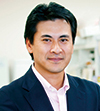
Katsuya Tsuchihara (NCC-EPOC)
Chief,
Division of Translational Oncology,
Exploratory Oncology Research and Clinical Trial Center (EPOC),
National Cancer Center Japan
Address: 6-5-1 Kashiwanoha, Kashiwa, Chiba 277-8577, Japan
Phone: +81-4-7133-1111
Fax: +81-4-7134-8786
E-mail: ktsuchih@east.ncc.go.jp
Education:
1993 M.D. Kanazawa University School of Medicine, Japan
2000 Ph.D. (Medicine) Graduate School of Tokyo Medical and Dental University, Japan
Awards:
2009 Nakahara Prize, National Cancer Center Japan
Professional Experiences:
1993-1994 Resident, Department of Surgery, Kanazawa University Hospital, Japan
1994-1995 Resident, Surgery Division, Takaoka Municipal Hospital, Japan
1998-2000 Research Fellow, Japan Society for the Promotion of Science
2000-2003 Research Fellow, Medical Research Council of Canada
2000-2005 Postdoctoral Fellow, Ontario Cancer Institute/University Health Network, University of Toronto, Canada
2005-2013 Head, National Cancer Center Hospital East, Japan
2012-present Visiting Professor, The University of Tokyo, Japan
2013-present Chief, National Cancer Center EPOC, Japan
Professional Duties:
2016-present Associated Editor, Japanese Journal of Clinical Oncology
2016-present Associated Editor, International Journal of Clinical Oncology
Scientific Societies:
Councilor, Japanese Cancer Association
Member, Japanese Society of Medical Oncology
Member, Education Committee, Japan Society of Clinical Oncology
Member, The Molecular Biology Society of Japan
Member, The Japanese Biochemical Society
Active Member, American Association for Cancer Research
Main Interests:
Cancer Genomics, Clinical Sequence, Cancer Metabolism, Molecular Diagnosis, Drug Development
|
|
|


























